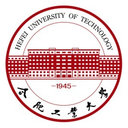Anti-fatigue effect of Renshen Yangrong decoction in mice.
Palavras-chave
Resumo
OBJECTIVE
To explore the anti-fatigue effect of Renshen Yangrong Decoction (RYD): in mice.
METHODS
One hundred Kunming mice were randomly divided into 5 groups with 20 mice in each: group. The negative control group was treated with distilled water, the positive control group was treated with Shiyiwei Shenqi Tablet (, 1.0 g/kg), the high-, medium- and low-dose RYD groups were treated with 42.0, 21.0 and 10.5 g/kg of RYD daily, respectively, by gastric infusion. At the end of the 7-day treatment, loaded swimming time, organ wet weight and coefficient, serum glucose, urea nitrogen, and hepatic glycogen levels were determined. The outcomes were compared among groups.
RESULTS
As compared with the negative: control group, the loaded swimming time was significantly increased in the positive control group, specifically the medium- and high-dose RYD groups (P<0.01). In addition, the wet weights and coefficients of the spleen and thymus, and the serum glucose and hepatic glycogen contents were increased, whereas serum urea nitrogen level was significantly decreased in the positive control group and the high dose RYD group (P<0.05 or P<0.01).
CONCLUSIONS
RYD showed an anti-fatigue effect in mice.


